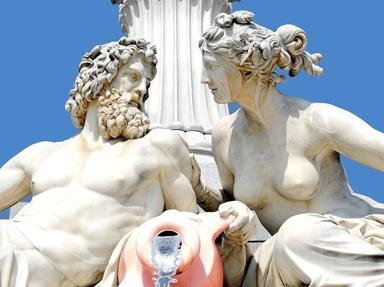
Who's Who: The Wise Ones Trivia Quiz
Nearly every culture had/has at least one deity that governs the domains of wisdom and intelligence in its religious beliefs. See if you can match each deity with its corresponding culture.
A matching quiz
by ponycargirl.
Estimated time: 3 mins.